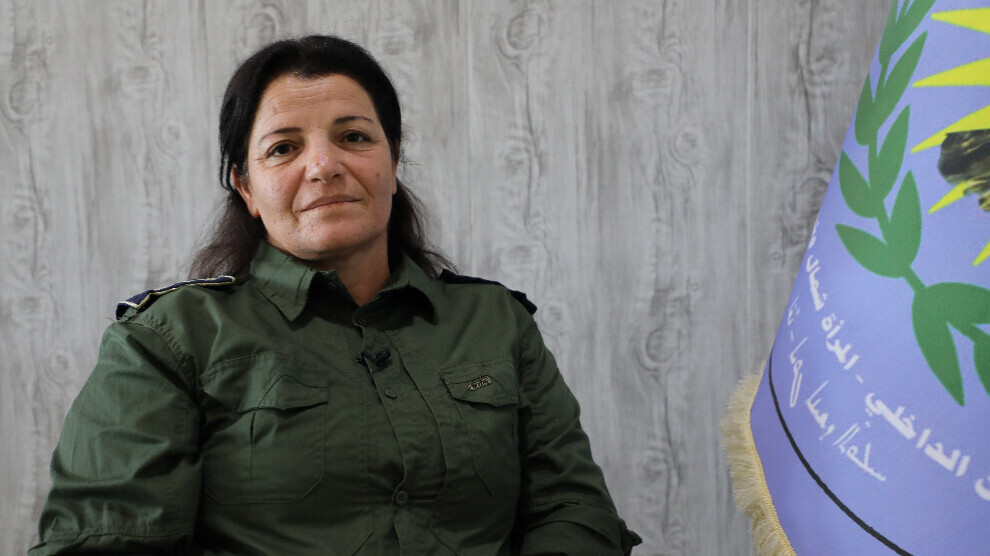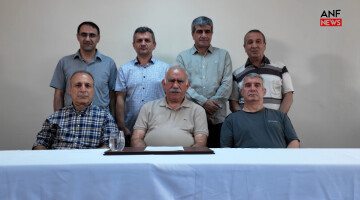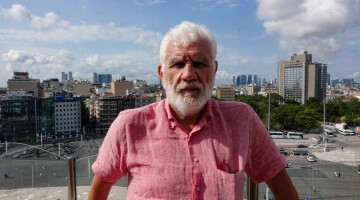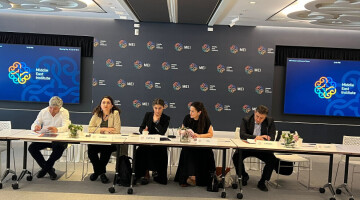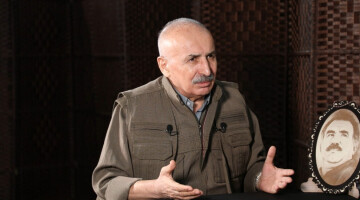Almas Hemîd comes from Afrin-Mabeta. The 48-year-old mother of four is one of the founders of the Internal Security Forces (Asayîş) in Afrin. She received her first training in self-defense thanks to the Rojava Revolution in 2012. After the Turkish invasion of Afrin in 2018, she was involved in setting up the security forces in the Shehba region. Today she is one of those responsible for security in the Deir ez-Zor region. In this interview with ANF, Almas Hemîd talked about her story and the organization of self-defense for women and society.
One of twelve women in the first self-defense training
Almas Hemîd saw the first self-defense structures being set up in 2011. She talked about the preparations for the revolution in Rojava: "In 2011, after the elections in Afrin, councils were set up. Self-defense was also part of this organizing process. I did not know what self-defense was. After a short training, I became part of the women's self-defense in the Mabeta district. At that time, in 2011, the Baath regime was still in control. With the Rojava revolution in 2012, we began to openly organize our self-defense. In February 2012, I took part in a training session for the self-defense unit with a group of twelve women. At that time, we did not call the units Asayîş. There were general self-defense forces in which women were also organized. But on 1 April 2012, the women's self-defense was founded. At that time, of course, these were not called Internal Security Forces. At first, we had no weapons. We organized our self-defense structures to ensure the safety of our streets, our people and our children. We discussed how we could build a women's self-defense force. We had just started to organize ourselves in this sense. From 2014 onwards we continued as the Internal Security Forces or Asayîş."
It was clear that it would not work without women's self-defense
Almas Hemîd described the development of women's self-defense as essential: "At the beginning of the revolution there were massive attacks on women. Society was attacked along with women. No one would defend women if they did not take care of their own defense. There was a comprehensive attack on society. For this reason, strong women's organization was necessary. Through educational work, an understanding of the importance of women and self-defense was created. It was understood that without the ability to defend themselves, a woman cannot protect herself, her family, her country and her society. Women who became aware of their power showed that they can lead society and that the paradigm of democratic modernity, which represents an alternative to the system imposed on society, fits with life."
Obstacles from family and society
This also led to a change in mentality. Almas Hemîd said about that difficult process: "When I started to participate in the work, I encountered obstacles from society and my family. It was not accepted that a woman participates in self-defense. I was confronted with questions such as: 'How can a woman keep watch on her street, in her neighborhood and ensure the security of checkpoints?' There were also questions about how a woman could do such work alongside a man and that self-defense was a man's job. This attitude was extremely dominant. After the self-defense training, I was assigned to ensure the security of a checkpoint. My family tried to prevent this for a month. I fulfilled my duty of self-defense without paying attention to the contradictions and crises. As a woman, I resisted my will being ignored and I did my duty.”
Leading activist in the establishment of security forces in Shehba
After Afrin was occupied by the Turkish army and its mercenaries in 2018, Hemîd immediately set about establishing self-defense in the canton of Shehba. “Our expulsion from Afrin to Shehba was a great pain. After the occupation of Afrin, the attacks on women did not stop. On the contrary, we were attacked even more, they wanted to take away our hope. But we were able to rebuild our internal security system, which we had created and brilliantly organized in Afrin, in Shehba.
I was involved in the establishment of the security forces in Shehba. We took important steps to restore women's self-defense. Less than a week after we moved to Shehba, we started organizing the work. Of course, it was not easy. We were scattered, it would not be easy to organize and come together. We were aware of this, but we knew that we could not live without self-defense. Our first checkpoints as Asayîş were set up in tents. Among displaced people, it is women who suffer the most pain and harm. By reorganizing the self-defense system, violence against women during and after displacement has been massively reduced compared to before.”
Self-defense begins in the mind
Almas Hemîd continued: “Ensuring the self-defense of our society is our priority. A person who cannot defend himself is not able to protect his society. Self-defense is also important to break the hands that turn against women. Self-defense is not something that can be achieved only through weapons; only an organized, educated, conscious society and women fighting for freedom can ensure self-defense. In short, self-defense must take place in the mind.”
Stepping into the light thanks to the revolution
At the end of the interview, Almas Hemîd described life before the revolution. She said: “It was a dead life. Imagine a woman in a room and the light in that room being turned off. The woman only breathed for her children and lived her life like that. There was nothing else but her children and her home. If there was a life, it was for her children. Even though my family was a patriotic family that supported the Kurdish freedom struggle, a feudal family structure still prevailed. With the realization of the Rojava revolution, the doors of that room opened and I was able to step into the light.”

